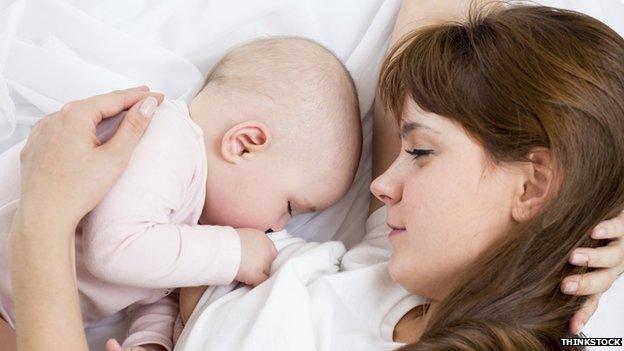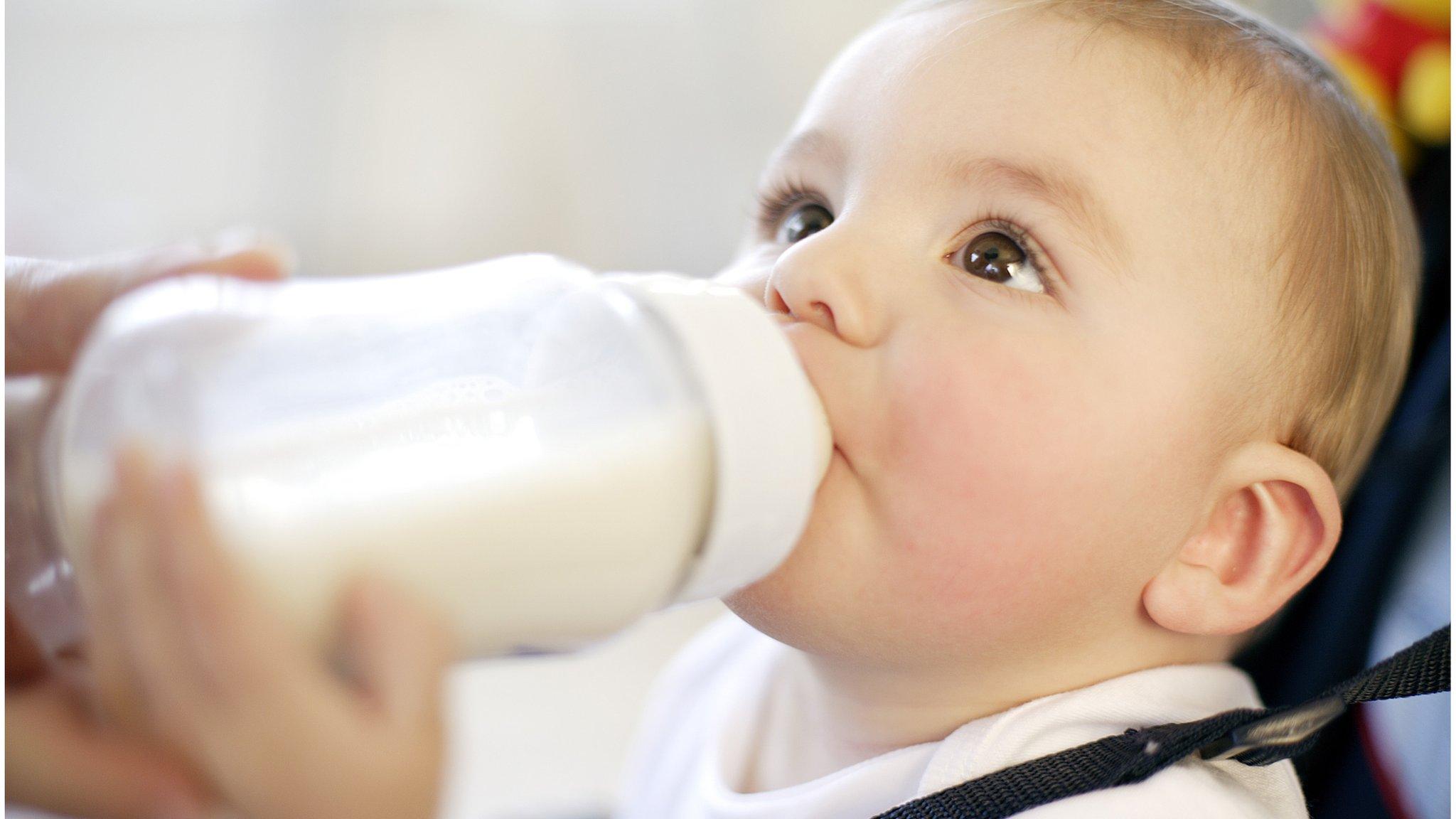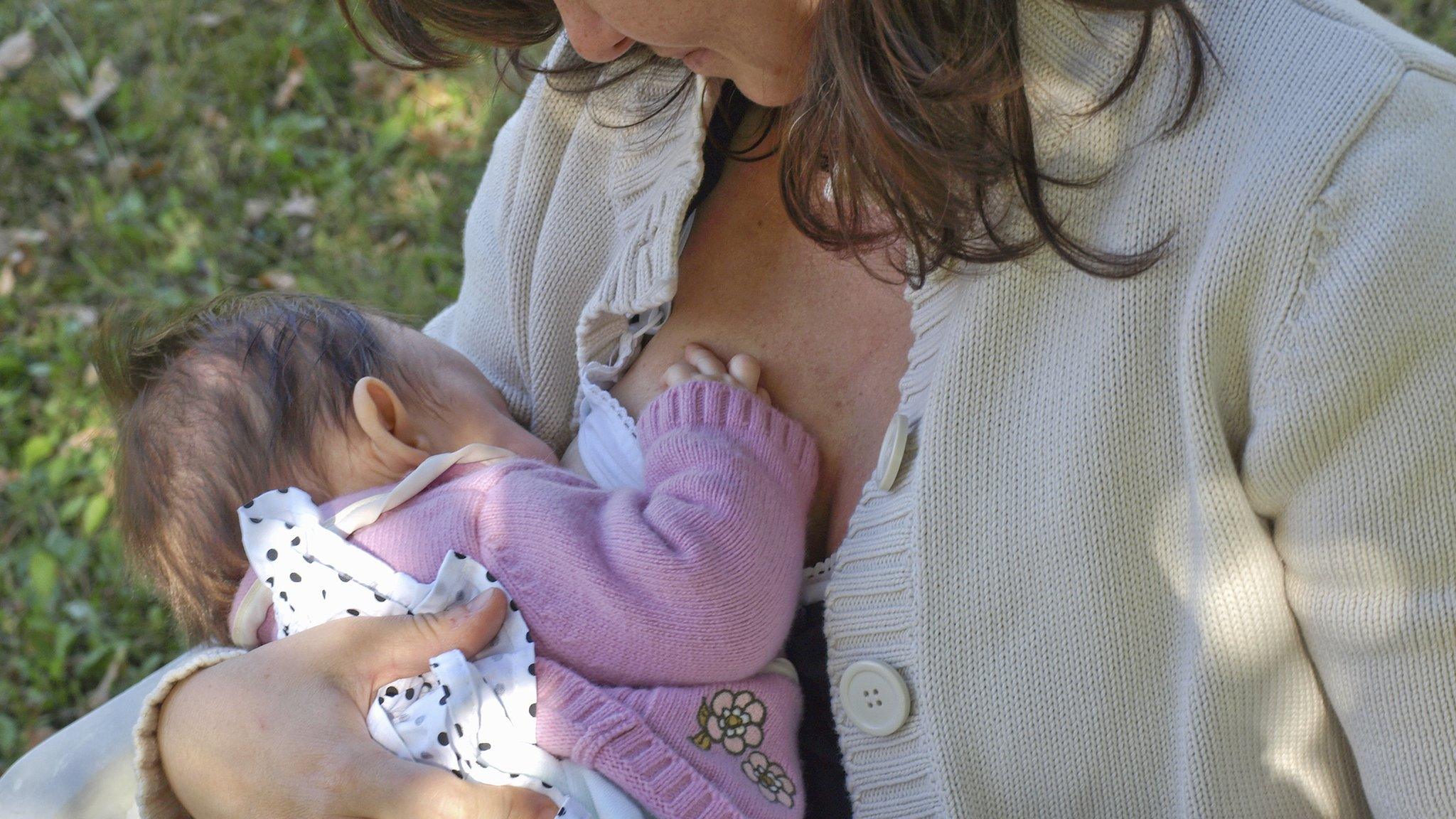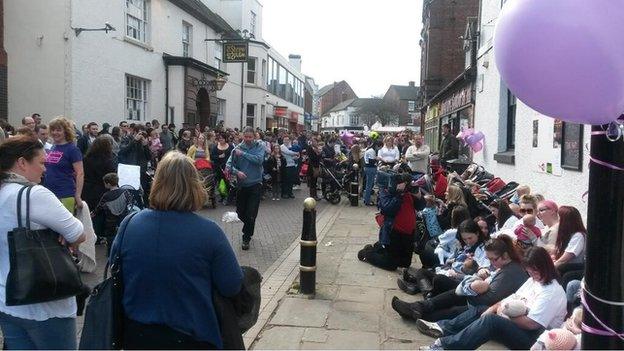More breastfeeding 'could save NHS millions'
- Published

Increasing the time women breastfeed could save the NHS millions of pounds by improving the health of mother and baby, figures suggest.
The analysis by Unicef UK said there was a "strong economic case" for supporting more women to breastfeed.
It said £11m every year could be saved by preventing infections and £31m by reducing the cases of breast cancer.
The Department of Health said it was "absolutely crucial" that new mothers received the support they needed.
The analysis, published in Archives of Diseases in Childhood, is part of a much larger report by Unicef on the health benefits of breast milk.
It found "good quality" evidence that breastfeeding was protective against gastrointestinal and lower respiratory tract and ear infections in infants.
The cost to the NHS of treating those infections was £89m every year, the team of researchers from across the UK calculated.
If the 21% of women who were exclusively breastfeeding at six weeks continued until their baby was at least four months old, it would save £4m a year in hospital and GP bills, the researchers said.
Increasing the figure to 45% would save £11m a year, they said.
Stopping early
Currently, 81% of new mothers start breastfeeding, but only 7% are still feeding with breast milk alone at four months.
Surveys had shown that most women stopped before they would like to because of problems, the researchers said.
Their analysis also indicated that if twice as many premature babies were fed breast milk, either from their mother or donor milk, while they were in hospital, the NHS would save £6m every year in treating the potentially deadly gut infection necrotising enterocolitis.
And if about a third of women breastfed one child or more for longer than seven months in total, the reduced rates of breast cancer could save £31m from the annual £960m spent in treating the disease in women who had given birth.

Breastfeeding rates at six months
Norway 80%
Sweden 68%
Australia 60%
UK 34%

They said it was very important to note that the findings did not depend on persuading more women to breastfeed, but supporting those already breastfeeding to carry on for longer.
The findings should "reassure policymakers, service planners and commissioners that a rapid return on investment is realistic and feasible", they added.
Study leader, Dr Subhash Pokhrel from Brunel University, said they had selected 45% still breastfeeding at four months as it seemed a "realistic" achievement.
Improving
Rosemary Dodds, senior policy adviser at the charity NCT and co-author of the study, said there had been enormous improvements in the past 20 years in increasing rates of breastfeeding for newborns but support in the community for women to breastfeed longer was lacking and the government had failed to lead on the issue.
"The National Institute for Health and Clinical Excellence said women should be getting proactive support, but that is not happening all over the country, and one of the reasons is data collection - those working in the community do no know who has had a baby," she said.
Other strategies recommended by the NCT included breastfeeding cafe's where pregnant women could find out about the realities of breastfeeding to boost their confidence, she said.
Health minister Dr Dan Poulter said: "The health and economic benefits of breast feeding are clear and it is absolutely crucial that new mothers get support with breastfeeding.
"That's why the Government has trained thousands of extra NHS midwives and health visitors in order to provide personal care to every new mum, and to help give more mums breast feeding support and advice."
- Published7 January 2014

- Published20 August 2014

- Published15 March 2014
